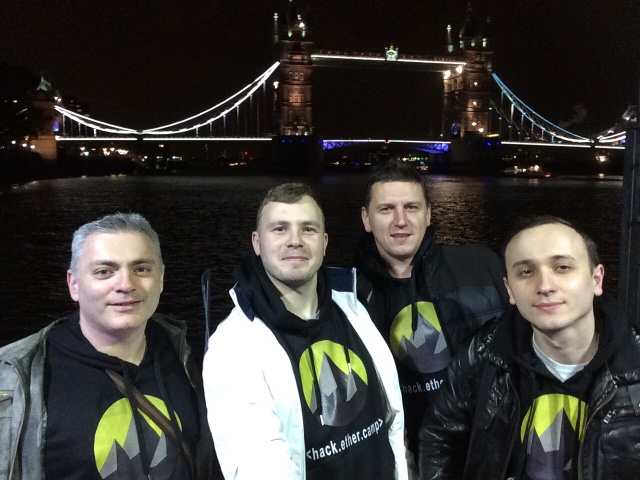Hackers in modern world are different. They regularly run marathons to figure out, who is the best of them in hacking Blockchain projects. Are they all criminals or programming scientists? Are they all dark personalities? Or are they looking at solving software vulnerabilities too?
Roman Mandeleil, CEO & Founder of ether.camp
Roman Mandeleil spoke in a special interview for Cointelegraph about Blockchain, smart contracts, hackathon, shared his experience as a hacker and information about Ethereum.
Cointelegraph: The word "Hackathon" is a portmanteau of the words "hack" and "marathon", where "hack" is used in the sense of exploratory programming, not its alternate meaning as a reference to computer crime. Can you tell is there a big difference in these competencies: programming specialist and hacker?
Roman Mandeleil: That is a very good question. It's going back to the roots of the movement of programmers and to the spirit of independent study and self improvement.
“There can be 2 archetypes of software people that can be noticed:
- Studied at university, had good marks and got his M.A. in programming
- Studied at home, done a lot of open source projects and become very known in the community for his skills.”
Please notice, probably both are programming pros, but the first will say I’am a specialist or an engineer the second will proudly say I am a hacker. In today’s reality this radical views are more interconnected and you see all of the archetypes mixed together.

CT: How big is the percent of hackers in your programming marathon?
RM: It's hard to tell, we didn't do deep study of the audience but this area of cryptocurrency is just full of smart guys that are anarcho independent and see themselves as hackers.
CT: How can you know, who is hacker and who is not?
RM: Well, I guess it's not a badge on a T-shirt, but if you interview people and watch carefully what they build you will be able to see.
CT: Tell us, why you, as a professional hacker, chose Ethereum. You tried to hack it?
RM: Actually I did , because I wasn't part of the Ethereum team so I have tried to study by watching what they are doing in the code, and connecting to the network from my own implementation, it worked well and I have implemented the whole thing. Also the community of people is great.
“I have implemented the java version of Ethereum, with mostly time no budget and one man team which was me.”
CT: What does your government think about Bitcoin? Does the Israeli Bitcoin community keep contact with government?
RM: We have tried, but they just have no solid opinion, and they are afraid to say anything decisive - I think it's not just Israeli politicians, but the nature of politicians in general.
CT: When can Ethereum be used even by a child? Or is it only for devs and hackers forever? Are there any vulnerabilities in smart contracts technology right now? And in other Blockchain technologies?
RM: It mostly depends on the application makers and some interfaces are quite easy to use already for example to give votes on hack.ether.camp it’s very easy. Another point you made which made me think is that when the hack event runs we should judge the presented apps like: would your grandma understand it? :)
“Ethereum is a very complicated protocol that give you a way to ensure that all the independent peers are in consensus regarding concrete value. The coding is something that is a compound from very simple concepts that become complex when you put them together and construct more complex concepts from the basics.”
CT: Why smart contracts are so interesting to hackers?
RM: Right, so why smart contracts are so important? Because it's the next stage of crypto economics. Anything that has a value can be decentralized.
CT: What is most attractive to hackers in the bitcoin scene?
RM: I think it's the way it operates between people. You can pay salaries in bitcoins without going through the banking system.
“The fast way to set a payment system and now the secured voting system in Ethereum. In the future most of the small investments will be done via the crypto system. Not for me to estimate the spread of bitcoins in the world, I think it's quite diversified at this point because pretty much everybody can buy coins, you don't need to be smart to do it even in the Ethereum world.”
I have no idea how the people who own Ether look like, and I was there from the beginning with a number of smart hackers around. Ethereum is growing and we are going to see this in the hackathon for sure.
CT: Bitcoin, Smart contracts, what’s next? What are your thoughts?
RM: I think next is to adapt the smart contracts to the mainstream culture the way bitcoin is now, for BTC it took 4 years let's see how much it will take for Ethereum. Afterwards it will be easier to talk about the next stage.
CT: What should I do for my safety, not to be hacked and keep my bitcoins safe?
RM: Nothing special just keep your private keys in some safe place, and use services that don't ask to keep you key on their servers.
